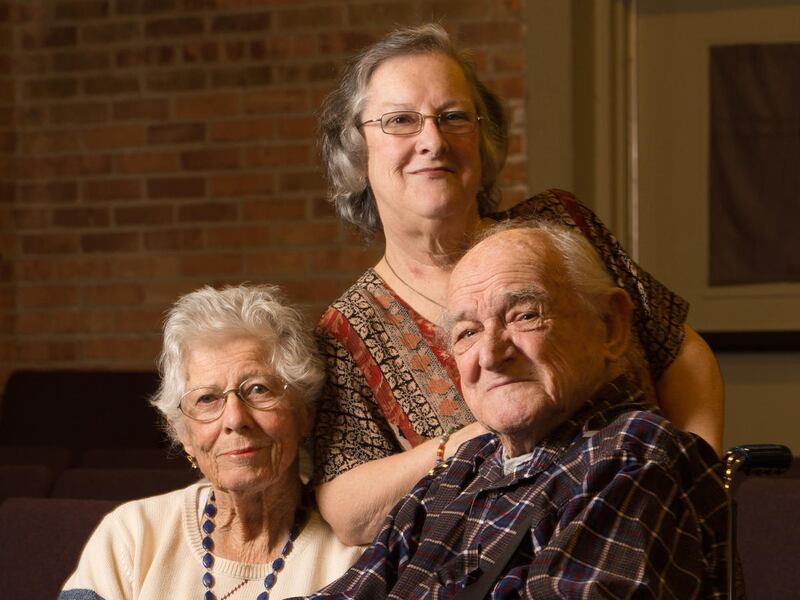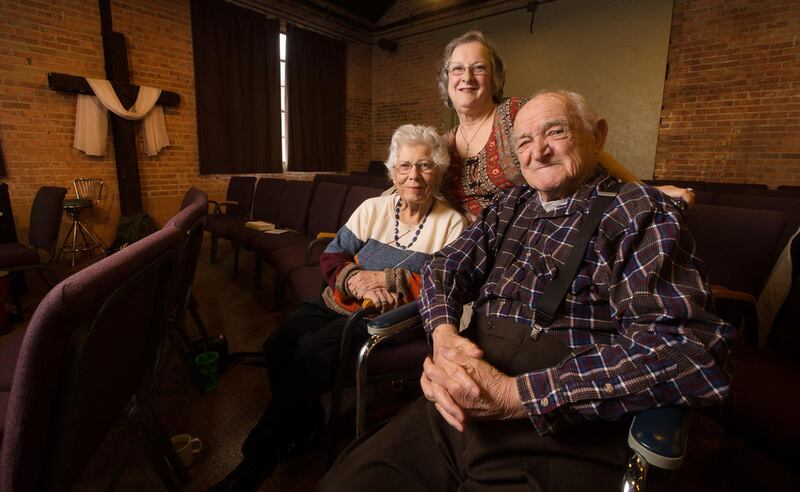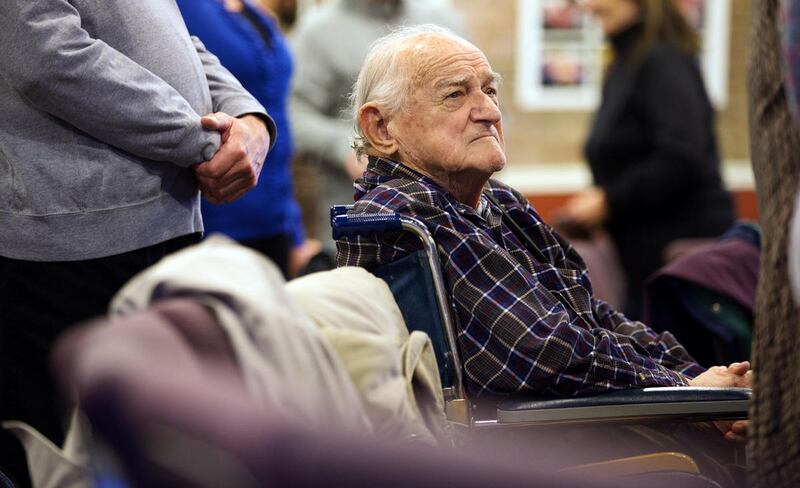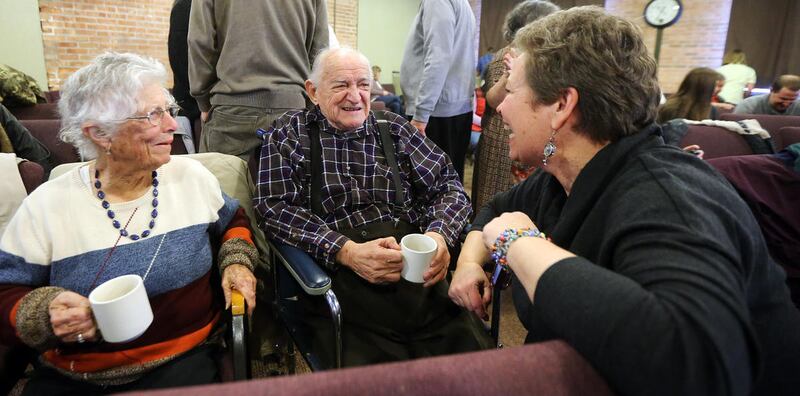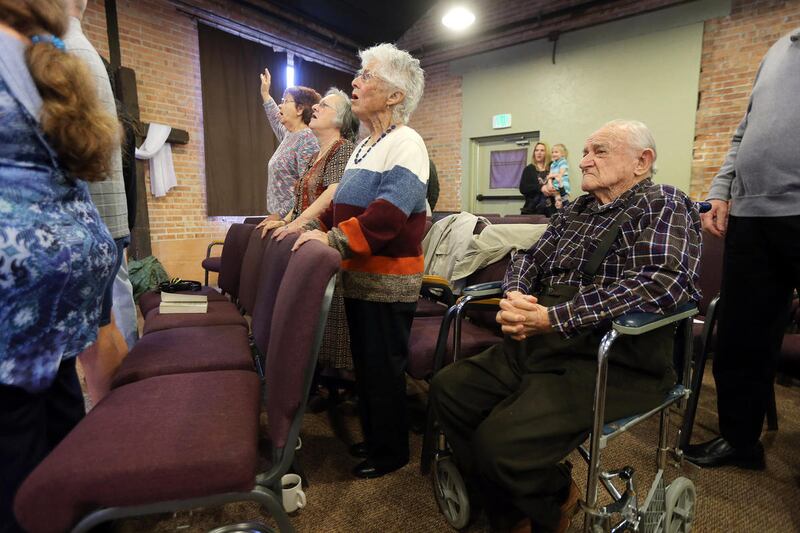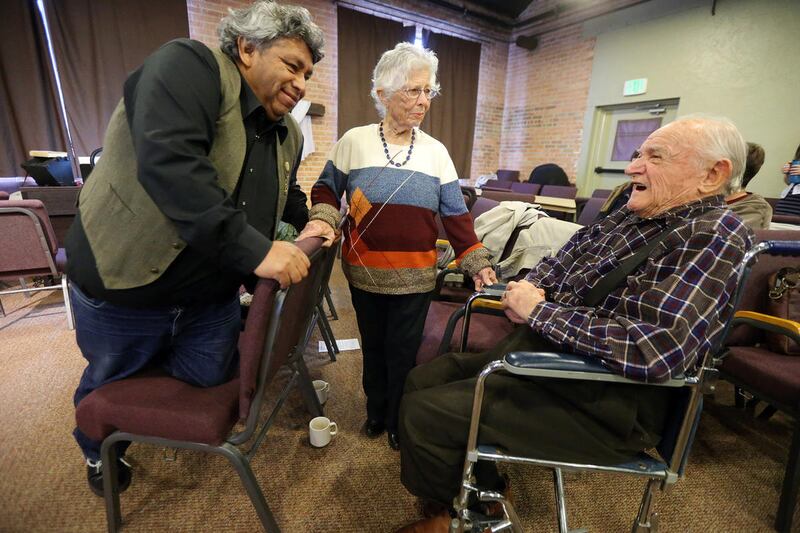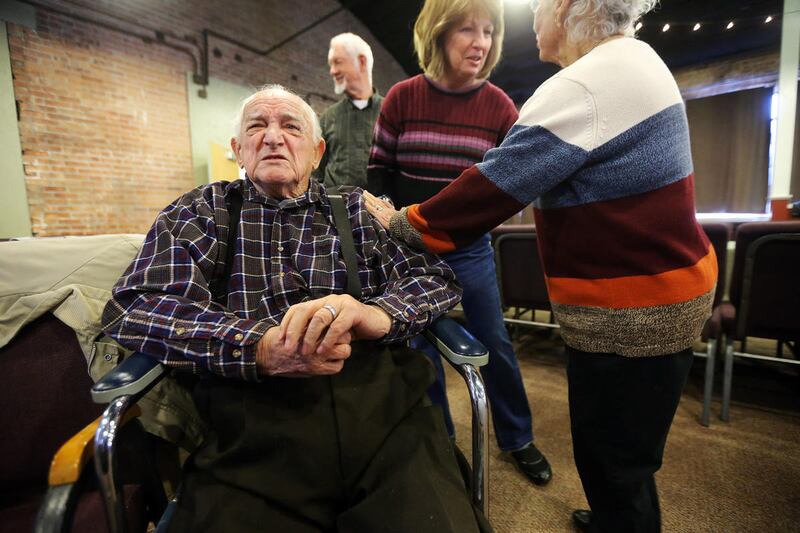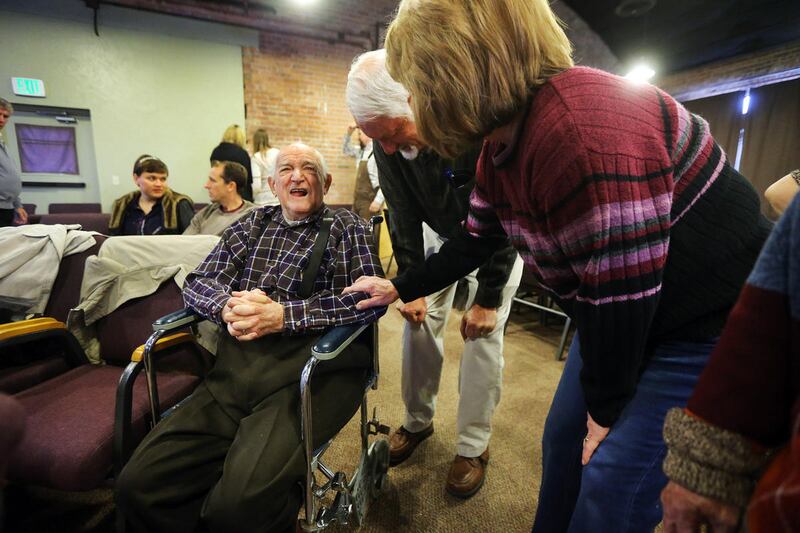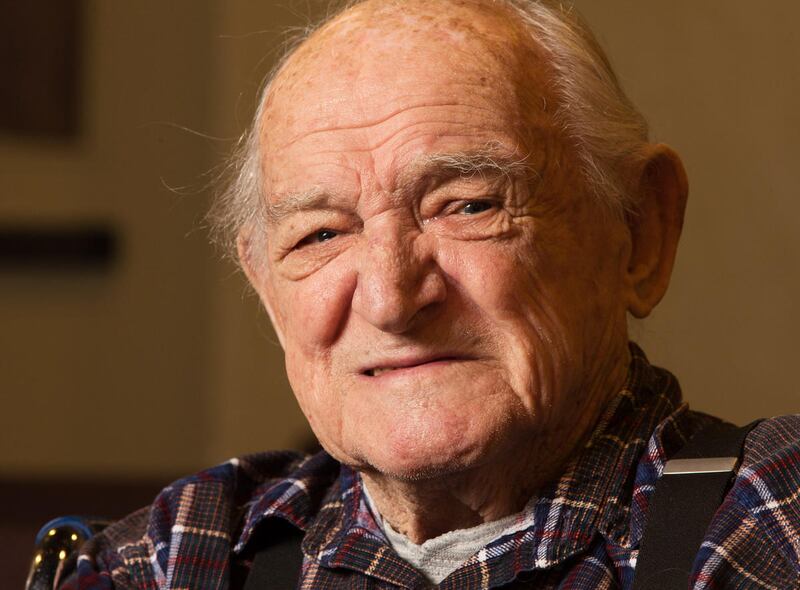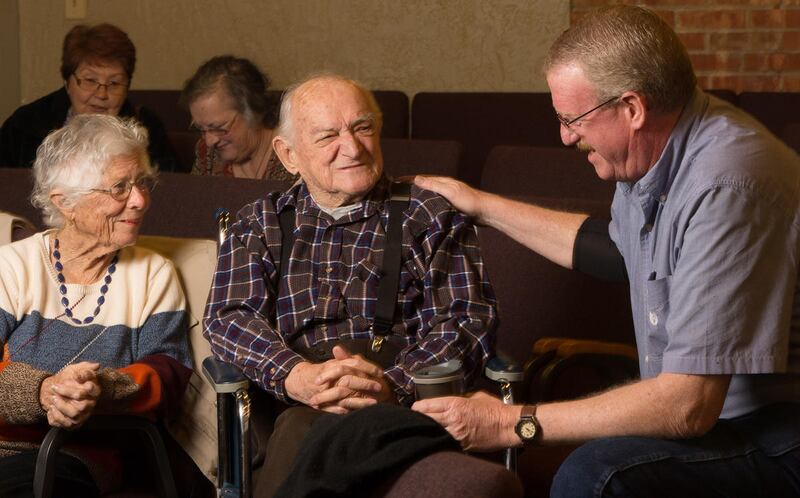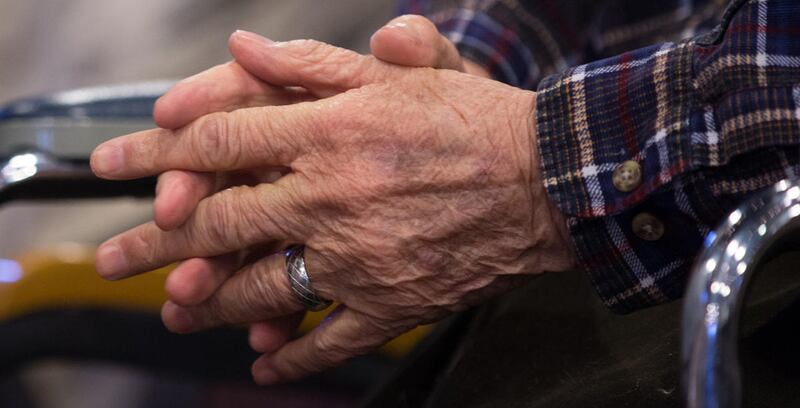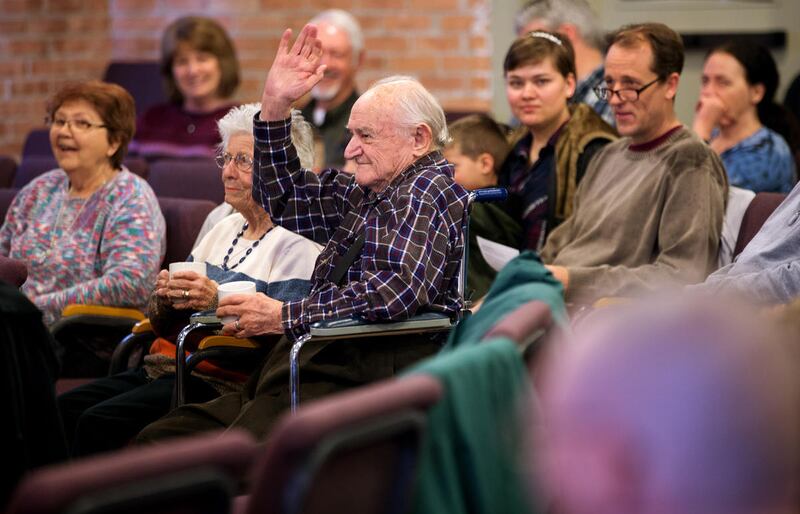For 30 years after the space shuttle Challenger exploded, Robert Ebeling concealed a terrible secret: He felt personally responsible for the shuttle’s destruction and the seven astronauts’ death.
Although Ebeling and four of his colleagues had warned NASA that leaking jet fuel could cause the shuttle to blow up, the engineer thought he should have done more to stop the launch. Burdened by guilt and depression, he retired from NASA contractor Morton Thiokol soon after the 1986 disaster, and he has spent much of the past 25 years tending a bird refuge near his home in Brigham City, Utah.
Ebeling, 89, has won national awards for his volunteer work at the bird refuge and is a beloved member of his community, but few people knew the debilitating guilt he still suffered – until January, when an NPR report on the catastrophe, and Ebeling’s desperate attempt to prevent it, opened a floodgate of love.
Now dying of cancer, the man who believed he was responsible for the disaster is hailed as an American hero, and the home he shares with his wife of 67 years is filled with letters and cards from people telling him how much they admire him. The magnitude of the response has brought much-needed absolution in the final stages of Ebeling’s life, his daughter said.
“He’s carried this burden for so long, and he’s finally able to let it go,” said Kathy Ebeling, the eldest of Robert and Darlene Ebeling’s four daughters. “It’s a godsend. It’s a miracle. Things like this don’t just happen after 30 years."
For Ebeling and his family, release from guilt was a long time coming. For many people, it never comes at all. One study published in the Archives of General Psychiatry in 2012 showed that feelings of guilt and remorse, visible through magnetic resonance imaging of the brain, can recur years after they were thought to be resolved.
Both science and religion regard guilt - and its corollary, shame - as appendages of conscience, useful in nudging human beings toward moral behavior. “Guilt can be a positive force. It’s ideally there so we know we’ve done wrong, and we’re motivated to do right,” said Rabbi Harlan J. Wechsler, founding rabbi of Congregation Or Zarua in New York City and host of a Sirius XM radio show, “Rabbi Wechsler Teaches.”
But too much guilt for too long can devastate a body, both physically and emotionally. And modern culture has no shortage of things that cause Americans to feel guilty. Thirty-nine percent have told pollsters they feel guilty for wasting food; 21 percent said they feel guilty about their environmental footprint. In one survey of cruise-takers, 42 percent said they felt guilty for relaxing – while on vacation.
Philadelphia author Lisa Scottoline wrote a book about guilt with her daughter, Francesca Serritella. “Nobody knows more about guilt than women,” Scottoline writes in the opening to “Have a Nice Guilt Trip.”
“I’ve long ago accepted that guilt is part of me, like cellulite,” she quips.
New York psychiatrist Peter Breggin argues that guilt, like shame and anxiety, have biologically outlived their usefulness to humans and are prehistoric “legacy emotions” that cause unnecessary suffering.
Many people of faith, however, view guilt as an inner compass that, when heeded, points to correct behavior and principles.
“All humans want to be good. It’s a wonderful and basic part of the human condition,” Wechsler said. It's when people fall short that the trouble begins.
Forgive us our sins
In the battle over who feels the guiltiest, Catholics often claim superiority, joking that while the Jewish people invented guilt, Catholics perfected it. “Catholic guilt” is a curious phenomenon, however, given that the Roman Catholic Church offers an institutionalized way to expunge it.
Through the sacrament of reconciliation, Catholics confess their sins to a priest, who acts on behalf of God to absolve it. The church teaches that the practice was given by Jesus to Peter when he told the apostle, “Whatever you shall bind on earth shall be bound in heaven, and whatever you loose on earth shall be loosed in heaven.” Catholics are required to go to confession at least once a year.
The sacrament gives Catholics “clear assurance that they are forgiven,” said the Rev. Father Raymond Studzinski, associate professor of spirituality at The Catholic University of America in Washington, D.C.
For most people, that’s enough. Others are still troubled by conscience even after confessing, Studzinski said.
“There’s the sin, and then there’s the feelings one has about it. The sacrament deals with taking away the sin. It usually, but not always, helps with the feelings. But you can be freed of your guilt and still plagued by it,” he said. In cases like that, Studzinski said, people should seek pastoral counseling and then, if recommended, psychotherapy.
That religions inspire guilt is not surprising, the rabbi said, given that most people derive their ideas of right and wrong from their faith.
“Guilt is a very real part of Jewish life,” said Wechsler, author of "What's So Bad About Guilt?"
“The Bible presupposes that people do right or wrong; once you have a set-up like that, it’s natural to feel guilty. We have at least 10 commandments, and the truth is, Jews have more than that – 613,” he said.
“Just as pain is an indication of something wrong physically, guilt is an indication of something wrong spiritually.”
Wechsler teaches the “five Rs,” stages of sins and forgiveness: remorse, recantation, renunciation, resolution (to do better) and reconciliation with both God and the people who have been wronged.
Yom Kippur is important in the process, he said. Also known as the Day of Atonement, Yom Kippur is prescribed in the 23rd chapter of Leviticus, when God told Moses that he and his people should “afflict your souls” once a year to make amends for wrongdoing.
During Yom Kippur, which lasts about 26 hours (and this year is Oct. 11-12), observant Jews abstain from work, food, drink and all physical pleasures, and spend much of the day in prayer. “It’s nice to have a process to get rid of guilt. It’s also really important that there’s a beginning and an end. It has to be a limited process; otherwise, there’s no end to it," Wechsler said.
“God did not create us to feel terrible,” he said. “Even though there’s an ultimate purpose for guilt, we shouldn’t get too hung up on it."
Is it guilt, remorse or shame?
Medical professionals and theologians differ on what comprises the subtle differences between guilt, remorse and shame.
Giovanni Frazzetto, author of “Joy, Guilt, Anger, Love: What Neuroscience Can – And Can’t – Tell Us About How We Feel,” puts it this way: “Bascially, guilt happens in private, whereas shame has an audience.”
Others say we experience guilt because of something we did (or didn’t do) but suffer shame about who we think we are.
Salman Akhtar, a psychiatrist and professor at Thomas Jefferson University Hospital in Philadelphia, said when most people talk of guilt, they mean remorse.
“Guilt is the feeling we have inside of us that we’re bad, or did something bad, because we broke rules given by religion, by family, by our nation, by our state,” he said.
“If we are driving a car at 2 a.m., and we drive through a red light, we’re going to have a little pang of guilt even if no one is watching. That’s guilt. It is distinct from another feeling, remorse, in which we also feel bad, but the bad feeling has to do with hurting somebody you care about. People unfortunately use the word guilt for both, and sometimes the two can overlap, but actually they’re separate.”
Remorse is evident in children as early as age 2 or 3. Guilt comes later, typically around age 4 or 5, when children begin to understand rules of conduct. (For the record, despite all those Internet “pet-shaming” photos of animals looking guilty, most scientists believe animals don’t feel guilt or shame – those long faces and hung heads are more likely an expression of fear.)
There are three bad things – and one good thing – that stem from the emotion, Akhtar said.
The bad: A person suffering from unresolved remorse can become self-punishing, manifest in behavior such as excessive drinking or smoking, overeating, mismanagement of money, or physically harming oneself. Suicide is the ultimate expression, he said, although self-destructiveness can result from factors other than guilt.
Secondly, a person can become abnormally afraid of authority, Akhtar said. (Shakespeare wrote of this when he said, “Suspicion always haunts the guilty mind; the thief doth fear each bush an officer.”)
Third, remorseful people constantly blames others, trying to direct the guilt away from themselves.
The solution to all this, however, is positive, and improves the outcome not only for yourself, but for others. As an example, Akhtar points to himself.
Akhtar and his wife moved to the U.S. 43 years ago, after he had earned his medical degree in his native India. For more than a decade, he said, he kept thinking “how tragic I am” because life was so difficult in a radically different country where he couldn’t find the food of his homeland and he “had to repeat my name three times if I ordered pizza.”
Then came a realization: “I woke up from this stupid dream and realized I felt horribly guilty. I felt I had abandoned my country, and I should have served in India.”
While he chose not to move back to India, he realized he could do something about the remorse: do good for the people of India. Now he spends a week there every year, providing medical education at no cost. “Reparation is a good defense against remorse,” he said.
A legacy emotion?
When the Challenger exploded 73 seconds after lift-off on the morning of Jan. 28, 1986, Ebeling was consumed with grief and guilt, believing that, despite the desperate arguments he and his colleagues made to NASA on the eve of the shuttle launch, he should have done more. NASA documents made public during congressional hearings provide evidence of Ebeling’s frantic efforts, including one urgent memo that said “Help!” When those failed, he thought about doing something more dramatic – storming into the office with his hunting shotgun – anything to force NASA to abort, Kathy Ebeling said.
In the aftermath of the explosion, vandals painted “Morton Thiokol Murderers” on an overpass leading to Ebeling’s office. It would be years until the full story came out: how Ebeling and his colleagues knew the O-rings that kept rocket fuel from leaking would fail in the cold (it was 36 degrees at lift-off, 15 degrees colder than any previous shuttle launch) and how they argued for hours against proceeding on schedule but were overruled by their superiors at Morton Thiokol and, ultimately, NASA.
While Ebeling has finally been able to forgive himself with the help of strangers, his 30 years of remorse came at great cost. For years, he could not bring himself to say his name when talking to reporters, his daughter said, and he let go of an enviable career at age 59.
The guilt may also have taken a toll on his health. Now 89, Ebeling suffers from prostate and kidney cancer as well as intermittent dementia, and the family has summoned hospice care.
In his book “Guilt, Shame and Anxiety, Understanding and Overcoming Negative Emotions,” Breggin says that, unlike shame and anxiety, which can cause physical changes such as blushing, tingling, rapid breathing and changes in blood pressure, guilt has no obvious physical manifestation.
“However, people do experience guilt in their bodies in various uncomfortable ways, often involving gastrointestinal discomfort, headaches and exhaustion. Guilt commonly drives people into feelings of depression, which cause a wide variety of uncomfortable and even disabling physical symptoms,” Breggin wrote.
Guilt's potential to disable is why Breggin calls it, along with shame and anxietyn “prehistoric legacy emotions” that people should work to banish from their lives.
“Guilt is the worst possible moral compass because what people feel guilty about has nothing to do with sound values,” said Breggin, who practices in Ithaca, N.Y.
He notes that many murderers feel no remorse for their crimes, while another person can be consumed with guilt if his dog steps off the curb while on a walk and gets hit by a car. The differences in how people process guilt goes back to early childhood and formative experiences we probably don't remember, he said.
In ancient societies, guilt and other inhibitory emotions served a purpose by helping to temper humans’ violent impulses. But Ebeling’s experience is a good example of why it’s no longer needed, Breggin said. “Guilt paralyzes us; it does not give us good guidance,” he said.
A self-guarded prison
In the years after the catastrophe, Ebeling tried antidepressants and prayed frequently, his daughter said. In 1989, he volunteered to work full-time for free at the Bear River Migratory Bird Refuge after it was devastated by the flood of the Great Salt Lake.
Even after the refuge was restored, Ebeling continued to volunteer at its education center, and he won several awards for his decades of service, including Volunteer of the Year for the National Wildlife Refuge Association in 2013.
Through volunteer work, Eleling was unconsciously following the path Akhtar recommends: seeking relief through helping others.
But ultimately, it was others who helped him, by taking the time to reach out with their emails, cards and letters, and Ebeling’s story makes clear that humans have a role to play in helping others escape from their self-guarded prisons of guilt and shame.
After NPR correspondent Howard Berkes told Ebeling’s story on the 30th anniversary of the disaster, hundreds of emails, letters and cards came in, the writers assuring Ebeling that he is an honorable man who did all he could have been expected to do. The people who wrote included officials and former officials from both NASA and Morton Thiokol, chaplains and priests, and a 9-year-old who said he is inspired to become an engineer after hearing Ebeling’s story.
“This has brought him some peace after all these years,” Kathy Ebeling said."I know God is going to welcome him with open arms. He did everything God wanted him to do."
EMAIL: Jgraham@deseretnews.com
TWITTER: @grahamtoday

